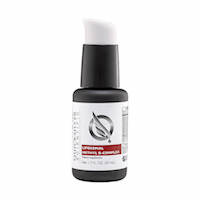Sure, you can pop a single multivitamin every morning—and that’s better than nothing—but spreading your vitamins and supplements throughout the day ensures you get the full benefit of each. Here’s an hour-by-hour guide to keep you running strong all day long.
See also Supplements for Total Body Health.
MORNING
Upon rising: Probiotic
If you’re not a yogurt-for-breakfast fan, consider starting your day with a probiotic supplement to get your intestinal tract, well, on track. Most probiotic supplements are best taken before eating, when your stomach is less active.
Benefit: immune and digestive support. Plus, probiotics help with absorption, which can help ensure you get the full nutrient benefit of foods you eat the rest of the day.
OW Recommends: Jarrow-Dophilus EPS; an enteric coating on the capsule protects the cultures from stomach acids.
Breakfast: Multivitamin

Benefit: covers gaps in daily nutrition; provides an array of vitamins, minerals and antioxidants you can’t always get from food with liposomal delivery.
OW Recommends: Quicksilver Scientific! Multivitamin liposomal for fast absorbtion and doesn’t contain any artificial colors, flavors or preservatives.
MID-MORNING
Mid-morning: B12
If you can’t even make it to lunch without feeling a little sluggish or out of focus, skip the second cup of joe and reach for the B12, a lack of which can cause fatigue and mood fluctuations. Vitamin B12—which is plentiful in shellfish and fish eggs, two less-than-appealing mid-morning snacks—is best absorbed when your stomach’s not super-full, so take it between meals. It also helps convert breakfast carbs and fats into energy. Tablets are the easiest form of B12 to find in stores, but sublingual tabs or sprays are often absorbed better and can be taken any time of day.
Benefit: nervous system support, energy production, hormonal regulation.
OW Recommends: Quicksilver Scientific Vitamin-B Complex: It contains a full array of B-vitamins and absorbs in your mouth, so you don’t have to choke down a big pill.
MID-DAY
Lunchtime: Omega-3, calcium

Benefit: anti-inflammatory, cardiovascular health, mood support.
OW Recommends: Schiff MegaRed Krill Oil; unlike fish oil, krill has no fishy odor or aftertaste, and it is recognized and absorbed faster than fish oil by your body’s cells.

Benefit: bone health, nervous system support.
OW Recommends: Jarrow Bone-Up Calcium; a highly absorbable form of calcium is combined with vitamins D and K to aid absorption.
MID-AFTERNOON
Mid-afternoon: Fiber
Fiber should be taken separately from other supplements, since it can interfere with their absorption—so mid-afternoon is a good time. Bonus: you’ll feel more full and less inclined to snack.
Benefit: promotes digestive regularity and healthy blood lipid levels.
OW Recommends: RenewLife Fiber-Smart; the powder form (also available in a capsule) gives you a break from all the pill swallowing. Mix the fiber powder and a twist of lemon with 8 ounces of cool or warm water.
EVENING

Calcium. Take your second dose of the day with dinner, to promote absorption. Bonus: Taken in the evening, calcium in combination with magnesium can help relax your muscles and lead to sound sleep.
Benefit: encourages muscle relaxation.
OW Recommends: Jarrow Bone-Up.
Enzymes are best taken with dinner, especially if you tend to eat late, to promote complete digestion before bed and ensure more restful sleep.
Benefit: maximizes digestion, prevents gastric distress, aids in absorption of nutrients.
OW Recommends: Enzymatic Therapy MegaZyme; the super high-potency formula means maximum results.
BED TIME
Before bed: Magnesium
Magnesium taken right before bed calms your mind and nervous system in preparation for sleep. Bonus: It can also encourage bowel regularity.
Benefit: relaxes muscles, supports the nervous system, promotes bone and heart health.
OW Recommends: Nature’s Way Magnesium.












Comments
Pingback: 7 Answers to the Most Frequently Asked Questions About When Is The Best Time To Take Vitamins. | structuralgenetics.com